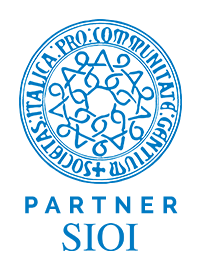(Marzia Giglioli)
C’era una scuola a Chicago dove gli studenti dovevano affrontare una serie di esami molto impegnativi. Se non li superavano, ricevevano come voto un ‘non ancora’. Il messaggio era chiaro: si può raggiungere il traguardo se si è certi di poter arrivare alla conoscenza. È il confronto tra la Growth Mindset (la mentalità di crescita) opposto alla Fixed Mindset (la mentalità rigida) di cui Carol Dweck, docente a Standford, ha scritto decenni fa.
Potremmo adattarla oggi al rapporto tra noi e l’intelligenza artificiale. Una mentalità rigida significa incentrare tutto sui rischi del lavoro cancellato, oppure sulla nostra incapacità di controllo rispetto ad una tenologia ‘troppo avanti a noi’. La mentalità di crescita, invece, ci dice che siamo tutti in grado di imparare cose nuove, di saper cambiare in maniera consapevole, di saper accettare anche i fallimenti, imparando anche da questi.
Serve, probabilmente, una transizione genetica tra i due modi di pensare che dovrebbe non esaurirsi nel solo rapporto tra noi e la nuova tecnologia.
L’IA, intanto, è dentro la nostra vita, la usiamo quotidianamente molto di più di quanto ne siamo consapevoli, e non c ‘è altra via che imparare ad affrontarla, lasciando indietro il pensare tradizionale. Il che non significa non esaminarne gli aspetti critici, non prevedere gli interventi di salvaguardia del lavoro in quei settori destinati ad essere compromessi, o non fissarne le norme etiche. Significa guardare all’evoluzione tecnologica con occhi diversi, semplicemente perché non possiamo evitarla ma possiamo affrontarla.
Non tutto è prevedibile. La certezza dei prossimi anni sarà l’incertezza. L’errore sarebbe nel non essere vigili e permettere che i linguaggi della rigidità, con tutti i pregiudizi e i modelli culturali chiusi, i settarismi, i razzismi, i pregiudizi di genere possano essere espansi dall’ intelligenza artificiale. Questo sarebbe il fallimento dell’era digitale. Accettare i limiti senza conoscere quale siano i nostri.
(English version)
There was a school in Chicago where students had to take a series of very challenging exams. If they didn’t pass, they received a ‘not yet’ as a grade. The message was clear: you can reach the finish line if you are sure you can reach knowledge. It is the comparison between the Growth Mindset (the growth mentality) versus the Fixed Mindset (the rigid mentality) that Carol Dweck, a professor at Stanford, wrote about decades ago.
We could adapt it today to the relationship between us and artificial intelligence. A rigid mentality means focusing everything on the risks of canceled work, or on our inability to control a technology that is ‘too ahead of us’. The growth mentality, on the other hand, tells us that we are all capable of learning new things, of knowing how to change consciously, of knowing how to accept failures, also learning from them.
We probably need a genetic transition between the two ways of thinking which should not end only in the relationship between us and the new technology.
AI, meanwhile, is inside our lives, we use it every day much more than we are aware of, and there is no other way than to learn to deal with it, leaving traditional thinking behind. Which does not mean not examining the critical aspects, not providing for interventions to safeguard employment in those sectors destined to be compromised, or not establishing the ethical standards. It means looking at technological evolution with different eyes, simply because we cannot avoid it but we can face it.
Not everything is predictable. The certainty of the coming years will be uncertainty. The mistake would be in not being vigilant and allowing the languages of rigidity, with all the prejudices and closed cultural models, sectarianism, racism, gender prejudices to be expanded by artificial intelligence. This would be the failure of the digital age. Accepting limits without knowing what ours are.
(riproduzione autorizzata citando la fonte – reproduction authorized citing the source)



